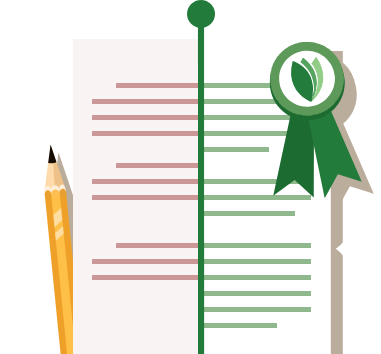Dartmouth College asks applicants to answer three supplemental essay prompts, each quirkier than the last. As the smallest and most northern Ivy League school, Dartmouth stands out for its tight-knit community and famously creative alumni, from Dr. Seuss and Mr. Rogers, to Mindy Kaling and Robert Frost. If you’re applying to Dartmouth, you might find their unusual essay prompts intimidating. In this post, we’ll break down how to answer each of the Dartmouth supplemental essays. We’ll also help you choose the right prompts for your unique background and personality so that you can put your best foot forward on your application.

Dartmouth College’s 2025-2026 Prompts
You will need to write three essays for your Dartmouth College application. The first essay is a relatively straightforward “Why Dartmouth?” prompt. For the second and third essays, you’ll be able to select your favorite prompt from a list of prompts. You’ll need to choose wisely!
“Why Dartmouth?” Essay Question
- As you seek admission to Dartmouth’s Class of 2030, what aspects of the college’s academic program, community, and/or campus environment attract your interest? How is Dartmouth a good fit for you? (100 words or fewer)
Identity & Background Essay Questions
Respond to one of the following. Each question has a limit of 250 words.
- There is a Quaker saying: Let your life speak. Describe the environment in which you were raised and the impact it has had on the person you are today.
- “Be yourself,” Oscar Wilde advised. “Everyone else is taken.” Introduce yourself.
Personal Reflection & Values Essay Questions
Respond to one of the following. Each question has a limit of 250 words.
- What excites you?
- Labor leader and civil rights activist Dolores Huerta recommended a life of purpose. “We must use our lives to make the world a better place to live, not just to acquire things,” she said. “That is what we are put on the earth for.” In what ways do you hope to make—or are you already making—an impact? Why? How?
- In an Instagram post, best-selling British author Matt Haig cheered the impact of reading. “A good novel is the best invention humans have ever created for imagining other lives,” he wrote. How have you experienced such insight from reading? What did you read and how did it alter the way you understand yourself and others?
- The social and family interactions of wild chimpanzees have been the focus of Dame Jane Goodall’s research for decades. Her understanding of animal behavior prompted the English primatologist to see a lesson for human communities as well: “Change happens by listening and then starting a dialogue with the people who are doing something you don’t believe is right.” Channel Dame Goodall: Tell us about a moment when you engaged in a difficult conversation or encountered someone with an opinion or perspective that was different from your own. How did you find common ground?
- Celebrate your nerdy side.
- “It’s not easy being green…” was the frequent refrain of Kermit the Frog. How has difference been a part of your life, and how have you embraced it as part of your identity, outlook, or sense of purpose?
- The Mindy Kaling Theater Lab will be an exciting new addition to Dartmouth’s Hopkins Center for the Arts. “It’s a place where you can fail,” the actor/producer and Dartmouth alumna said when her gift was announced. “You can try things out, fail, and then revamp and rework things… A thing can be bad on its journey to becoming good.” Share a story of failure, trial runs, revamping, reworking, or journeying from bad to good.

“Why Dartmouth?” Essay Question
As you seek admission to Dartmouth’s Class of 2029, what aspects of the college’s academic program, community, and/or campus environment attract your interest? How is Dartmouth a good fit for you? (100 words or fewer)
This prompt looks like many other college application prompts: it just boils down to “Why Dartmouth?” By mentioning Dartmouth’s “academic program, community, and/or campus environment,” the admissions team gives you some inspiration for this essay’s content. Think about who you are, and who you hope to be at Dartmouth. What about Dartmouth will help you become more yourself and achieve your goals?
In addition, if you find yourself drawn to any specific aspect of Dartmouth’s mission statement and core values, this essay response is a great place for you to break down why those values speak to you and/or draw you to apply to Dartmouth College.
The admissions team expects you to have completed some research on Dartmouth’s unique offerings. Name programs, courses, clubs, and/or specific cultural qualities of Dartmouth College that interest you. Then, explain what interests you about them.
You could also touch on what makes Dartmouth different. Without putting other schools down, what does Dartmouth provide that you couldn’t have access to anywhere else? The key is that your reader should know you’re writing about Dartmouth whether they’re explicitly told or not. Why? Because your explanation for why Dartmouth is right for you could not be repurposed for any other school.
Dartmouth Identity & Background Essay Questions
The following two prompts, which you can choose between, both focus on who you are. Option A asks about your background; option B asks you to introduce yourself. Unlike many other essay prompts, these prompts don’t focus on who you will be and what you will do, but rather on who you are now.
Here’s a quick breakdown to help you choose the prompt that’s right for you:
- Option A is the best choice if you want to focus on how your community, hometown, family, school, or other external factors have shaped the person you are today.
- Option B is the best choice if you want to focus on how you have developed as a unique individual, independent of your background or circumstances.
Option A: There is a Quaker saying: Let your life speak. Describe the environment in which you were raised and the impact it has had on the person you are today. (250 words or fewer)
This prompt asks you to reflect on your past and bring it to the page in a brief essay response. It’s a tall order: you’ll need to describe not only your background, but also how it has impacted you, and who you are today. These elements can be provided in any order. For instance, your essay could have one of the following outlines:
- Describe my unique way of seeing the world
- Describe my family and how they see the world
- Describe how my family influenced the way I see the world
or
- Open with an anecdote about my school
- Describe how I struggled to fit in at my school
- Express how that experience has shaped who I am today
These outlines are just examples, not suggestions or prescriptions. Before writing this essay, consider writing your own outline so that you can be sure you incorporate all of the important elements into your essay.
Option B: “Be yourself,” Oscar Wilde advised. “Everyone else is taken.” Introduce yourself. (250 words or fewer)
This essay prompt asks you who you are, but more than that, it asks you to describe what makes you unique. If “everyone else is taken,” then authenticity is all the more important. Honesty and integrity are crucial aspects of the college application process. This essay particularly relies on authenticity, and standing out from the crowd requires authenticity.
Like your “Why Dartmouth?” essay, this response should apply only to you. If someone who knows you reads your response without anyone telling them who wrote it, they should be able to confidently identify you as the author.
Introducing yourself is a notoriously difficult task, despite sounding quite simple. Consider the biographical details that make you who you are. Also, consider your response to the classic “Tell me about yourself” interview question. Then, try to identify the threads that link some or most of your identifying characteristics together. To the best of your ability, highlight those threads in your essay response.
Dartmouth Personal Reflection & Values Essay Questions
The following seven essay prompts are diverse and creative, but each comes down to the same core: what do you do? This question could apply to your academic life, your extracurricular activities, your community service, your family obligations, what you do for fun, or some combination. It can also apply to what you will do in the future (and how you are currently preparing to do those things in the future).
Here’s a brief breakdown of each prompt and why you should choose it over the others:
- Option A is the broadest and should be chosen if you feel like you have a good sense of a cohesive answer already that doesn’t quite fit with the other prompts.
- Option B might be best suited to students who are engaged in civic or community service and wish to continue impacting society, though bear in mind that the prompt can be interpreted expansively.
- Option C is likely best suited for students who are genuinely transformed by literature and can articulate how reading has deepened their understanding of human nature and their own place in the world.
- Option D is for the diplomats and moderators of the world. If you have learned how to navigate conversations with a homophobic family member, racist classmate, misogynist coworker, or the like, then you have probably developed the kind of resilience, maturity, and self-confidence that admissions officers look for in prospective students. If that sounds like you, take the opportunity to explore those strengths, experiences, and lessons here.
- Option E might be the prompt for you if you possess a specific, unique nerdy interest that is not otherwise clearly reflected in your application.
- Option F is a strong choice for students whose identities, experiences with diversity, or challenging backgrounds have shaped their perspectives and life experiences.
- Option G is likely best suited for students who embrace failure as a necessary part of growth and can reflect thoughtfully on their journey from initial struggle to eventual success or understanding.
Option A: What excites you? (250 words or fewer)
This essay prompt gives you a broad canvas to paint upon—which means you especially need to make sure your composition is cohesive! When writing your response to this prompt, you might want to start by focusing on a specific 2-4 activities, topics, ideas, etc. that excite you. If possible, draw a thread between the different items you list.
Note that it’s okay to describe just one topic/idea/activity which excites you. If you choose that route, you’ll want to be sure that you expand upon the nuances of your choice and how it excites you in a multitude of ways. Even if your essay focuses on a limited subject, you can describe the different strengths you employ to do this exciting activity. Alternatively, you could discuss the different parts of your personality which are required to engage with this idea which excites you.
When answering this question, don’t feel restricted to academic or “serious” endeavors. Excitement doesn’t need to have formal or educational origins to be genuine and appropriate for a college essay context. Nevertheless, if possible, provide some diversity to your brief list. You can get creative with your answer! For instance, you might list many (i.e. 10+) topics, but each revolves around 1-2 related central ideas. Stay cohesive and cogent.
Option B: Labor leader and civil rights activist Dolores Huerta recommended a life of purpose. “We must use our lives to make the world a better place to live, not just to acquire things,” she said. “That is what we are put on the earth for.” In what ways do you hope to make—or are you already making—an impact? Why? How? (250 words or fewer)
This essay prompt requires specificity when it asks “Why? How?” When describing the impact you hope to make or are already making, make sure your description is grounded in concrete details. Consider the following types of details you can name:
- Community organizations you work with or hope to work with
- Specific communities of individuals you help or would like to help
- Specific initiatives you are spearheading or hope to spearhead
- Specific social issues you are working to solve now or in the future
Even though this prompt implies topics of community or civic service in its response, you can respond expansively. For instance, if you are a painter, you might want to impact the people who view your paintings with a certain kind of emotion. If you’re a student-athlete, maybe you want to inspire the next generation of student-athletes or run marathons for charity. If you’re an aspiring mathematician, maybe you want to impact your specific field of interest with groundbreaking discoveries.
Whatever impact you hope to make or are making, do your best to elucidate what actions you are taking to instigate this change. Additionally, provide some insight regarding what motivates you to make this impact.
Option C: In an Instagram post, best-selling British author Matt Haig cheered the impact of reading. “A good novel is the best invention humans have ever created for imagining other lives,” he wrote. How have you experienced such insight from reading? What did you read and how did it alter the way you understand yourself and others? (250 words or fewer)
Reading is a deeply personal act of imagination, and this essay prompt invites you to share your unique relationship with literature. Before you begin writing, take time to truly reflect on your reading experiences without distractions. Put away your phone and let your mind wander freely for at least 15 minutes, thinking about books that have stayed with you, characters who felt real, moments when you saw the world differently after reading something. Write down whatever emerges quickly to capture these authentic reflections. Repeat this exercise on different days to gather genuine insights about which books truly changed how you see yourself or others.
When selecting your focus, choose a reading experience that genuinely transformed your understanding rather than something you think sounds impressive. The book doesn’t need to be a classic—it just needs to have meaningfully impacted how you view yourself and others. Since you only have 250 words, be specific and focused on one book and one key insight. Describe the specific moment or realization that shifted your perspective, explaining both what you understood about the characters and what this revealed about real people in your life.
Make sure your essay is accessible to unfamiliar readers by sharing your draft with people who can identify where you need clearer explanations. The goal is to demonstrate that you allow literature to genuinely influence how you understand human nature and your place in the world, using your authentic reflections to create an essay that reveals genuine curiosity about other lives and capacity for growth through reading.
Option D: The social and family interactions of wild chimpanzees have been the focus of Dame Jane Goodall’s research for decades. Her understanding of animal behavior prompted the English primatologist to see a lesson for human communities as well: “Change happens by listening and then starting a dialogue with the people who are doing something you don’t believe is right.” Channel Dame Goodall: Tell us about a moment when you engaged in a difficult conversation or encountered someone with an opinion or perspective that was different from your own. How did you find common ground? (250 words or fewer)
This challenging prompt will benefit from some prior brainstorming. Consider which values you adhere to most strongly, and whether those values have changed over time. How did they change? If any crucial conversations were involved in those changes, you can write about one of those conversations here.
If there is anyone in your life right now who holds very different worldviews from yourself, this is a great opportunity for you to explore that relationship. This person could be a family member, classmate, friend, coworker, neighbor, etc. How do you interact with this person? What are your tactics of diplomacy? Discuss one conversation you’ve had with this person in your essay response. Be sure to use specific details so your narrative is vivid for the reader.
Option E: Celebrate your nerdy side. (250 words or fewer)
This joyful essay prompt gives you the opportunity to embrace what makes you a nerd, freely and without judgment. Many students have nerdy interests that don’t naturally fit into a college application. Maybe you have an obsession with a board game, a book series, or an esoteric area of study. If so, this prompt is for you.
If you’re full of nerdy qualities but finding this essay prompt challenging, consider asking a few friends or family members who know you well to describe what they think are aspects of your nerdy side. Oddly enough, “nerd’ is not usually a label we assign to ourselves, but one that others assign to us, sometimes in a critical manner. This essay prompt lets you reclaim this label in a positive light and express what nerdy activities, behaviors, or thought experiments you engage in—and how your nerdy side makes you you.
Option F: “It’s not easy being green…” was the frequent refrain of Kermit the Frog. How has difference been a part of your life, and how have you embraced it as part of your identity, outlook, or sense of purpose? (250 words or fewer)
This essay prompt puts a positive spin on the premise of being different and facing challenges. Try free-writing a response to this prompt before you compose a proper draft. What makes you stand out from the crowd, and how have those character traits, aspects of your identity, activities, or experiences impacted the way you move through the world?
When embarking upon a draft of this essay, try to describe the way your differences impact who you are today. What actions do you take, what perspectives do you hold, and how do you interact with the world as a result of your difference(s)?
As always, keep your essay response specific and personal to you and your experience. Although this essay response is about what makes you different, there may be many other students who are different in a same or similar way to you. Ideally, if someone who knows you reads this essay, they will instantly know it’s about your experience, not the experience of someone who happens to have commonalities with you.
Lastly, note the usage of “embraced” in the essay prompt’s wording. In the case of this prompt, the reader is anticipating an optimistic outlook and/or positive view of your differences. If you choose to describe adversity you’ve faced, make sure that your response emphasizes the way you have embraced your difference(s) despite or even because of the adversity you have faced.
Option G: The Mindy Kaling Theater Lab will be an exciting new addition to Dartmouth’s Hopkins Center for the Arts. “It’s a place where you can fail,” the actor/producer and Dartmouth alumna said when her gift was announced. “You can try things out, fail, and then revamp and rework things… A thing can be bad on its journey to becoming good.” Share a story of failure, trial runs, revamping, reworking, or journeying from bad to good. (250 words or fewer)
This prompt celebrates the messy, iterative process of growth and improvement, inviting you to share a story where initial failure led to eventual success or deeper understanding. The reference to Mindy Kaling’s perspective on creative experimentation signals that Dartmouth values resilience, adaptability, and the willingness to learn from setbacks. Before you begin writing, reflect on experiences where you didn’t succeed immediately but persisted through multiple attempts, revisions, or approaches until you achieved something meaningful.
Choose a specific story that demonstrates genuine struggle followed by meaningful growth or improvement. This could be a creative project that went through multiple drafts, a skill you developed through repeated practice and failure, a relationship you worked to repair, or a personal challenge you overcame through persistence and adaptation. The key is selecting something where the initial failure was real and meaningful, not just a minor setback. Avoid choosing experiences that were ultimately easy or where success came quickly—the power of this prompt lies in showing your response to genuine difficulty and your ability to learn from what doesn’t work.
Structure your essay to show the full journey from initial failure through the process of learning, adapting, and eventually succeeding or gaining understanding. Begin by establishing what you were trying to achieve and why it mattered to you, then honestly describe the initial failure or struggle. Be specific about what went wrong and how it felt to face that setback. The heart of your essay should focus on what you did next—how you analyzed what wasn’t working, what changes you made, what you learned from each attempt, and how you persisted despite continued challenges. Finally, reflect on the eventual outcome and what the entire process taught you about failure, persistence, and growth. The admissions committee wants to see that you don’t just bounce back from failure but that you actively learn from it and use those lessons to improve your approach and achieve your goals.
If you need help polishing up your Dartmouth College supplemental essays, check out our College Essay Review service. You can receive detailed feedback from Ivy League consultants in as little as 24 hours.





